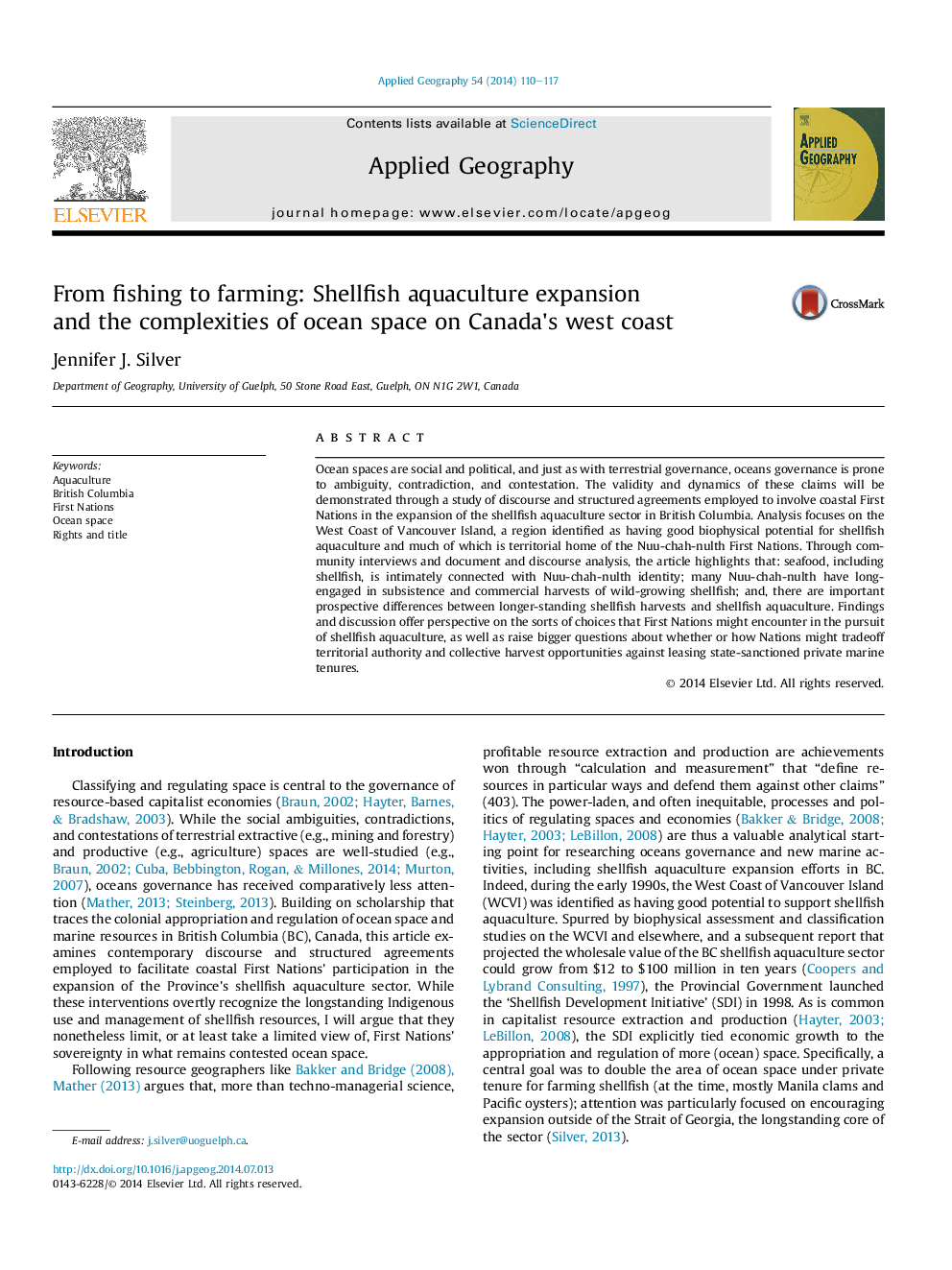| Article ID | Journal | Published Year | Pages | File Type |
|---|---|---|---|---|
| 83287 | Applied Geography | 2014 | 8 Pages |
•Ocean spaces are social and political spaces; history shows this to be true in BC.•First Nations' culture and well-being is intimately tied to land-sea territories.•Recognizing this, shellfish aquaculture was promoted as ideal for First Nations.•Tradeoffs between territorial authority and leasing private marine tenures emerge.
Ocean spaces are social and political, and just as with terrestrial governance, oceans governance is prone to ambiguity, contradiction, and contestation. The validity and dynamics of these claims will be demonstrated through a study of discourse and structured agreements employed to involve coastal First Nations in the expansion of the shellfish aquaculture sector in British Columbia. Analysis focuses on the West Coast of Vancouver Island, a region identified as having good biophysical potential for shellfish aquaculture and much of which is territorial home of the Nuu-chah-nulth First Nations. Through community interviews and document and discourse analysis, the article highlights that: seafood, including shellfish, is intimately connected with Nuu-chah-nulth identity; many Nuu-chah-nulth have long-engaged in subsistence and commercial harvests of wild-growing shellfish; and, there are important prospective differences between longer-standing shellfish harvests and shellfish aquaculture. Findings and discussion offer perspective on the sorts of choices that First Nations might encounter in the pursuit of shellfish aquaculture, as well as raise bigger questions about whether or how Nations might tradeoff territorial authority and collective harvest opportunities against leasing state-sanctioned private marine tenures.
